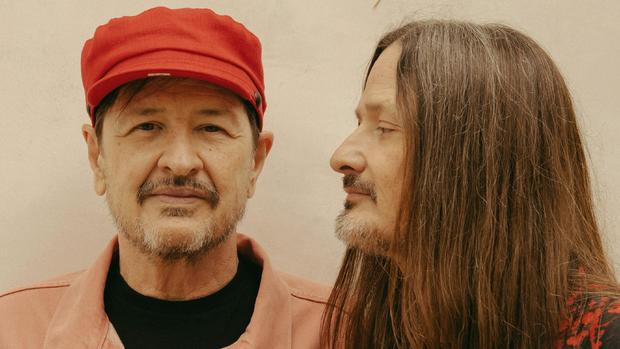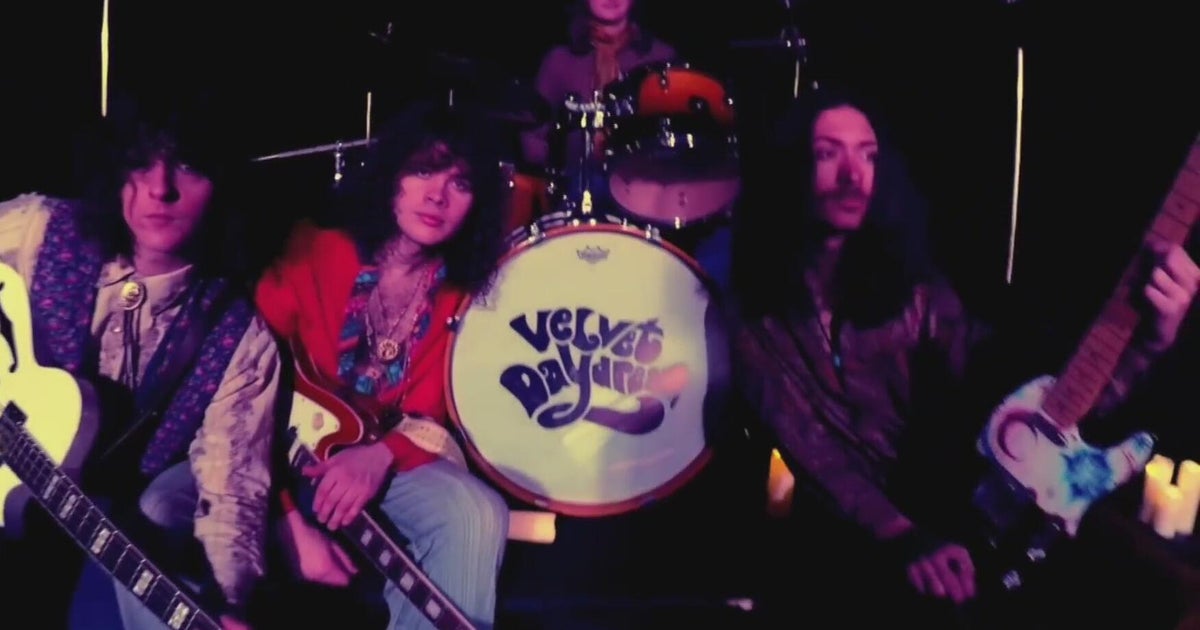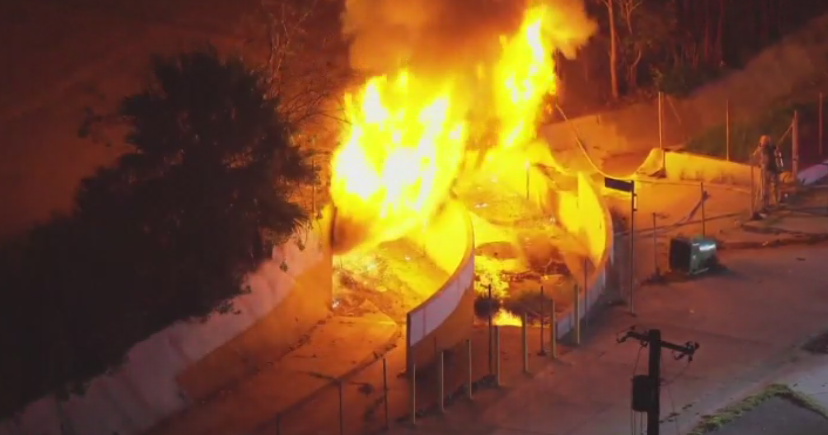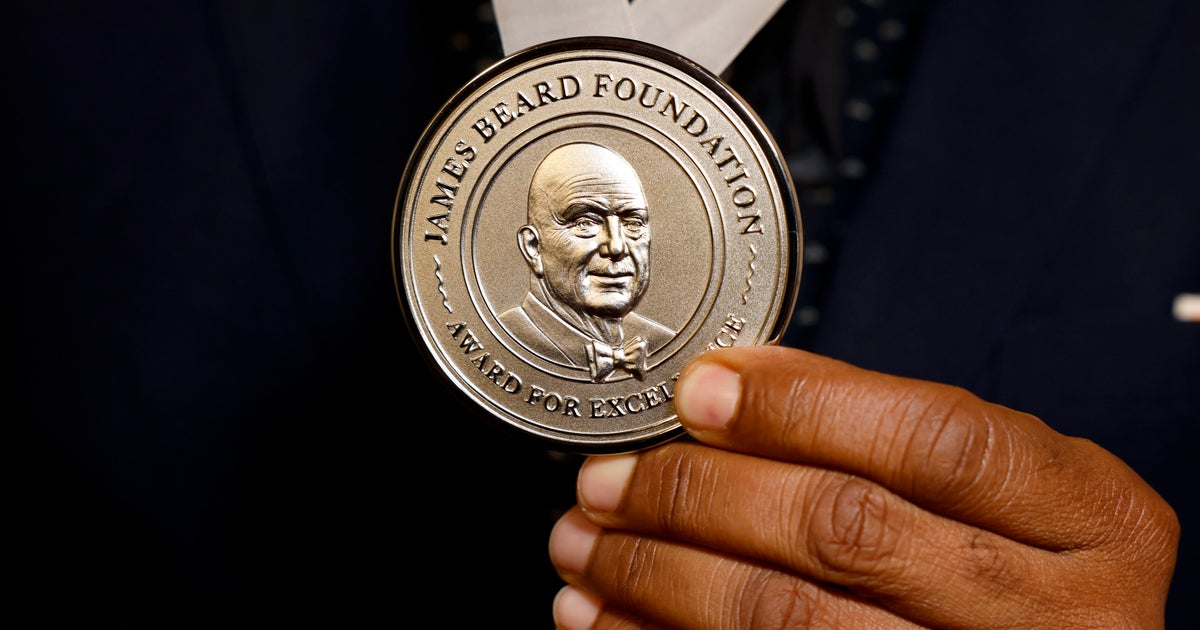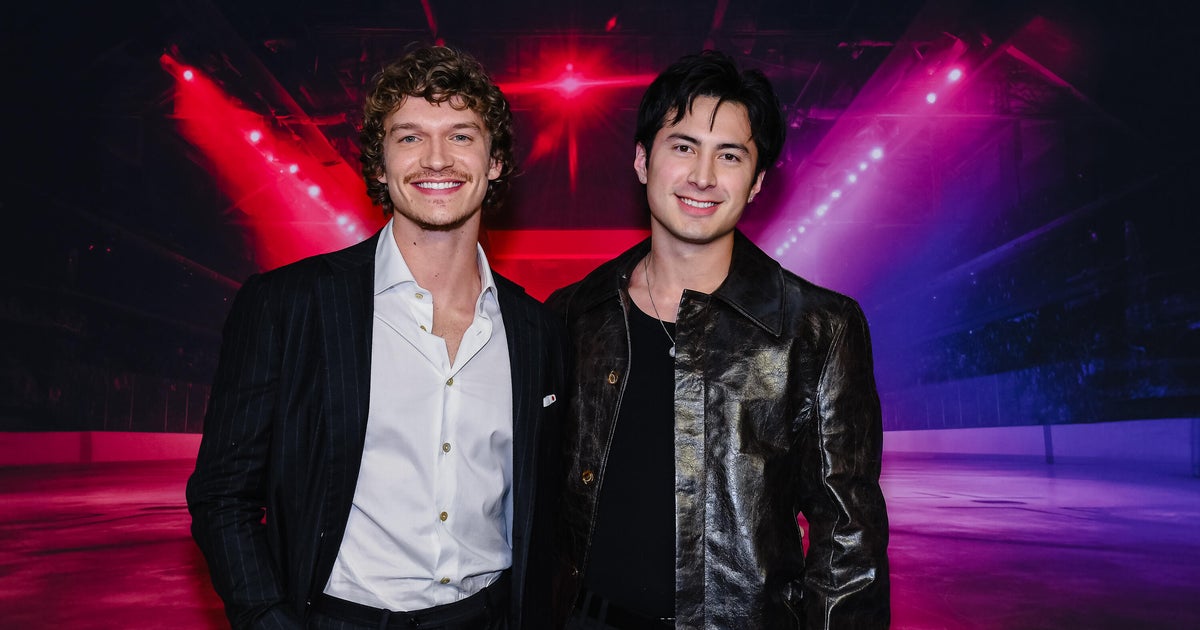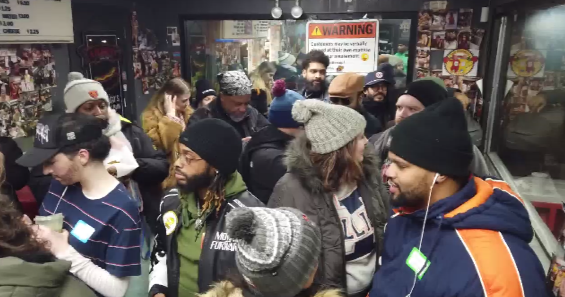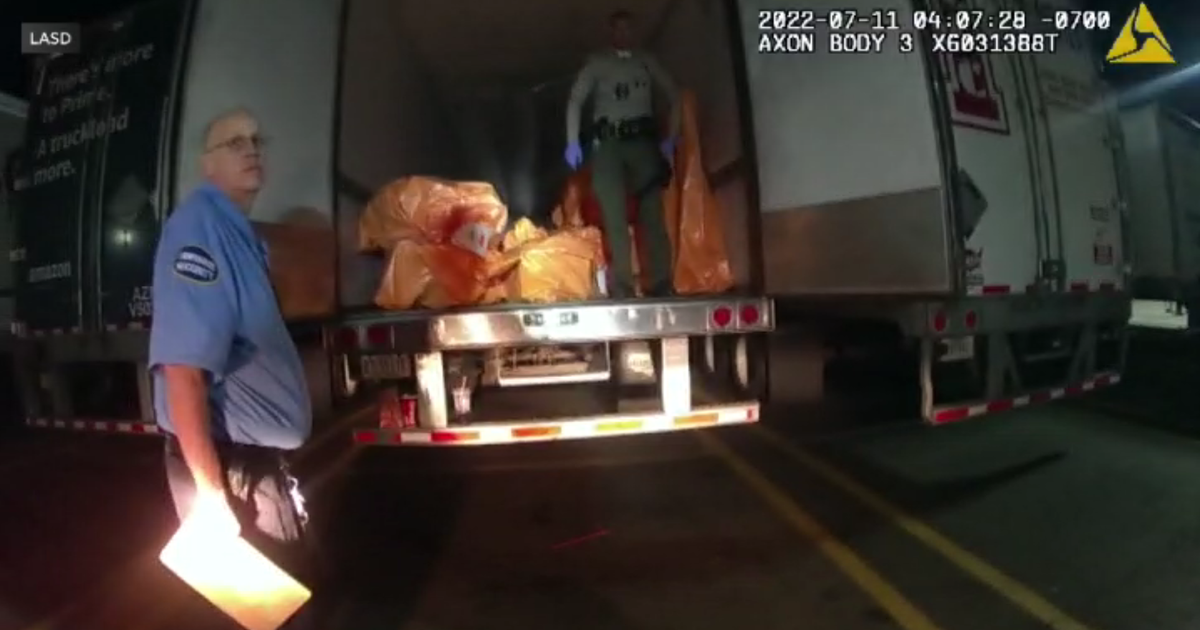Redd Kross co-founder Steve McDonald talks about band's new album
Steve McDonald of influential Los Angeles punk/power-pop band Redd Kross talks about the band's spectacular new self-titled album ahead of its June 28th release and the group's appearance at the Mosswood Meltdown in Oakland.
Inspired by the Beatles, bubblegum pop and glam rock at a young age, McDonald brothers Steven and Jeff dove into the Los Angeles punk scene with their first band, the Tourists. The group played its first show opening for Black Flag in 1978 when Jeff (guitar/vocals) was 15 and Steven (bass) was only 11. Along with second guitarist Greg Hetson -- who would later play with the Circle Jerks and Bad Religion -- and future Black Flag drummer Ron Reyes, the crew would change its name to Red Cross right before recording it's debut self-titled EP in 1979.
The six-song effort clocked in at just under six and a half minutes and showcased the brothers' already developing knack for catchy, trashy punk tunes. While Hetson and Reyes would move on, the brothers enlisted several collaborators for their first proper full-length album in 1982, Born Innocent. With its brief, buzzsaw songs focusing on subject matter like young actresses Linda Blair (star of The Exorcist) and Tatum O'Neal, cult leader Charles Manson and Runaways guitarist Lita Ford, the recording placed the band firmly in the more pop-minded end of the punk rock spectrum, following in the footsteps of the Ramones and the Buzzcocks. It was after that release that a lawsuit threatened by the International Red Cross led the group to change the spelling of its name.
The band's next effort, the 1984 covers EP Teen Babes from Monsanto, paid tribute to some of their cornerstone influences with versions of songs by Kiss, David Bowie, the Stooges and the Shangri-Las. The band would take a detour into filmmaking, appearing in and even contributing to the screenplays of Desperate Teenage Lovedolls and Lovedolls Superstar, a pair of low-budget underground films shot in Super 8 that would develop a cult audience that still celebrates the two punk movies.
In the meantime, a new line-up of the band had solidified with guitarist Robert Hecker and drummer Roy McDonald (formerly of the Things and later a member of The Muffs). The group would return to the studio and record their landmark Neurotica album that came out in 1987 on Big Time Records. Expanding their sound to embrace psychedelia and '60s garage rock, the album would prove to be influential not only on the SoCal rock scene but on the fledgling alternative-rock movement.
Through a steady rotation of players, the McDonald brothers would persevere, recovering from Big Tim folding to sign a deal with Atlantic Records to release the power-pop gem Third Eye in 1990, the first of three records for the label during the decade. But despite solid reviews, an appearance in the time-travel farce Spirit of '76, some MTV airplay and numerous tours with less accomplished bands (Redd Kross at various points supported the Lemonheads, the Spin Doctors and Stone Temple Pilots during the early '90s), the band never quite broke through. They eventually went on an extended hiatus in 1997.
The Neurotica line-up of the band would reunite to play a career-spanning set of songs in Los Angeles nearly a decade later, reviving interest in the group, leading to some limited touring and invitations to play at a variety of festivals including Coachella, the ATP vs Pitchfork Festival in England, NXNE in Toronto and the Turbo Rock Festival in Spain. In 2012, Redd Kross released its first album in 15 years with Researching the Blues on Merge Records, an effort that many hailed as one of the McDonald brothers' best yet.
While Steven McDonald has busied himself with other projects, playing bass in both the punk supergroup OFF! and more recently with heavy rock iconoclasts the Melvins, Redd Kross has still hit the road on occasion, touring extensively on their own and with the Melvins last year to promote the limited vinyl reissues of Teen Babes from Monsanto and the rarities collection Hot Issue on the band's own Redd Kross Fashion imprint.
In 2019, Jack White's Third Man Records reissued the band's long out-of-print '90s albums Phaseshifter and Show World in addition to the group releasing a new album for Merge entitled Beyond the Door. That Redd Kross effort featured covers of songs by Henry Mancini (the composer's theme to the film "The Party") and fellow pop-minded brother act Sparks ("When Do I Get To Sing 'My Way'") with Melvins drummer Dale Crover adding his propulsive percussion to the entire record that earned the band another round of glowing reviews.
While the pandemic curtailed plans to promote Beyond the Door, Redd Kross has emerged post-COVID with a serious burst of activity to help celebrate the band's 45th year of existence. In addition to the highly anticipated Andrew Reich directed documentary Born Innocent: The Redd Kross Story that has already garnered raves from film festival audiences, the band will be the focus of the upcoming memoir Now You're One Of Us authored by Dan Epstein with hefty input from the McDonald brothers and is releasing a new eponymous recording on June 28th -- the first double album in the group's history -- before embarking on a nationwide tour.
The jaunt will find Redd Kross playing Oakland's celebrated summer punk-rock festival the Mosswood Meltdown on Saturday, July 6, just before headliners the B-52s. CBS SF recently spoke with Steve McDonald about the making of the stunning new album, the inspirations behind the effort and his experiences playing with other musicians including Sparks, Beck, Tenacious D and the Melvins.
This interview has been edited for clarity.
CBS SF: I guess the first thing I want to say is, holy smokes, your guys' new album is...forget it. It's one of best things I've heard in ages and sure to be in my top five this year. It's fantastic. I've been telling people it should have come out on Memorial Day, because it ought to be blasting out of every car driving around in California. It is a California summer album.
Steve McDonald: That's very kind of you to say. We have released two songs already, so people have gotten, hopefully, a taste of what you're saying.
CBS SF: Your standards have always been high, but this whole record is blindingly great. An hour of top notch material. Did you realize that there was something special happening as you were recording the album?
Steve McDonald: Well, thank you. It's a little early for me to receive these deep compliments, but it's meaningful to me to hear you say that. Originally we had planned on the record just being your standard 12 song affair, and we had gone in with 14 songs, and things just were that; it was special. There was a special chemistry happening between Jeff and I when we started writing the songs.
But then also working in the studio with Josh Klinghoffer, who I've known for 20 years, it just flowed so nicely and it was such a great vibe that we just kept recording. [Then] we had 18 songs and were thinking, "Oh, we'll have some bonus tracks for Japan or something." Usually you retain a song or two for foreign territories. And we were like, "Screw that! Let's just keep going." And we recorded every song that we had.
CBS SF: You just put out Beyond the Door in 2019. Did you have have material already written that didn't make that album included on the new one?
Steve McDonald: There were a few Jeff had. The song "Candy Colored Catastrophe," which opens the album and was the first single and is a really great song, for some reason we sat on that one for 15 years [laughs]. And I don't know why. That's another example of Josh Klinghoffer being a great producer, because he heard that one out of the demos, and that was the one that he just became in love with and did a magical treatment to it.
And then a couple of Jeff's songs were pieces that he had had lying, so there was a little bit of archeology. But for the most part, the lion's share of the record was written since Beyond the Door. And we had the benefit of the pandemic, I guess, so there were a couple tunes that go back to 2020. But most of the record was from the end of 2023.
Jeff and I just kind of got together and sat in this room here, which I call the "riff lab," and and we just faced each other with acoustic guitars and wrote very Lennon and McCartney style. [We were] kind of inspired by [the Beatles documentary] having watched Get Back and having that intimate view into our heroes' creative process, and it being somewhat demystifying. Just realizing that those guys had such chemistry.
I mean, not to compare ourselves to the Beatles or whatever; but falling in love with how much they were in love with each other, and how much they viewed the chemistry that they had as special and rare. That was the driving thing that kept them together longer than maybe most people could have handled that pressure-cooker insanity that they experienced. And in our own little way, Jeff and I have a unique chemistry. And we're old enough now to value it the way I think that maybe I didn't always have the wisdom to.
CBS SF: It's interesting that you mentioned the Beatles, because when I listen to the new album, I hear early Who, I hear the Kinks. Probably both of those bands more than the Beatles, just because it's a little more punchy and aggressive. Maybe that's your your punk rock upbringing. There are echoes of all three really, but those two bands in particular. And I do not say that lightly, because people are always talking about the Beatles vs. the Rolling Stones; I like them a lot, but I think I like the Kinks and the Who better.
Steve McDonald: It's shame Jeff's not with us right now, because he's a scholar of these bands. I mean, the Kinks, obviously you have another brother team. To me, it's a great tragedy that that Ray and Dave [Davies] are not making music together right now. Once again, the chemistry of these rare combinations of people, it's not to be squandered.
I will say my little proud, humble brag is that Dave keeps popping up on the Internet wearing a Redd Kross shirt [laughs]. His girlfriend is a fan and turned him on to us. He had a shirt from, oh God, it must have been 10 years ago. But I've been seeing him wear it a lot lately. He's really leaning into the Redd Kross shirt. So as the little brother in a brother team, to me, that's so special.
CBS SF: Born Innocent is the name of the band's first full-length album released in 1982 and it's the name of the new documentary about the band. And in a way, the idea of being born innocent sort of feels like an important element to the whole Redd Kross esthetic. Why did it take 45 years to write a song with the same title?
Steve McDonald: The documentary, at least for me, I feel like it's a companion piece to the album, in many ways. But the filmmaker -- the director Andrew Reich, who had made this documentary and spent like eight years cobbling it together -- he asked us last summer if we would consider writing a song that he could use as the closing credits song. And he challenged us to try to write sort of an origin story song, and that's where that came from.
It's kind of started the ball rolling, but we recorded that with Josh in his studio last summer, and it just went so well that it kind of inspired making the rest of the record with him, which we did over the holidays. There are definitely songs that I wrote that were inspired by the little clips I had seen of the film. There's a song called "Way Too Happy" that I wrote after I saw my bandmate in the Melvins, Dale Crover, talking about Kurt Cobain's sort of post show review after seeing us in 1987 in Tacoma, Washington. I guess he said, "Those guys are too happy. Why are they so happy?"
I just felt like, "Well, that's the show we put on. But you didn't know me." And how absurd is that? I mean, Kurt was the greatest, probably the most important songwriter of my generation. And he wasn't really s--t talking, but kind of was [laughs]. And it felt a little bit like, "Oh my God, a ghost just talked smack about me!" What a weird feeling. It's just another example of how I feel like the film kind of informed some of the topics of the of the record, which in some ways became somewhat autobiographical. I feel like the record feels very much like a defining of, in some ways, who we are.
CBS SF: And much like "Candy Colored Catastrophe" is a great opener, "Born Innocent" is a fine bookend. It's kind of like the album's closing credits song.
Steve McDonald: Originally we didn't know we were going to put it on the record. We thought it was separate for the movie. But then when we decided to do an 18 song record, we kind of needed it. And once we decided that, it was like, "Well, where does it go? Oh, it's the closing track of the record too." And I had that song "Stunt Queen," which is the second song that was the big rave-up into the record. It's got this big, long noise thing. It just became like, "Well, we got to get the party started early with that one." And so that's the second song. It seemed obvious at the time. I don't know, it's hard to sequence an 18 song record. We've never done that before.
CBS SF: It sounds like the recording of "Born Innocent" served as a gateway for making the whole album with Josh Klinghoffer, but you also toured with him in Sparks in the 2000s. Did he play drums on that tour?
Steve McDonald: No, he wasn't! Playing drums are, well, I guess it was technically his first instrument when he was a little kid. He got a drum set for his bar mitzvah. But he's a guitar player. He's played in the Red Hot Chili Peppers. We played in Sparks together, but how we met each other was playing in Beck's band in 2004. And he was the kid wonder. I'm 13 years older than him, but he's so much more accomplished than me. He's like this kid brother and I really wanted his approval.
That's one of the things that made a unique dynamic between my brother and myself, because we were on such good behavior with Josh. But then it was sort of like I'd never been in the studio with my "kid brother." So that was really neat. He just really held us both up to the light in a special way and made it happen.
CBS SF: It's impressive that he managed to make the time when he's so busy. He's clearly got a lot going on...
Steve McDonald: He's in Pearl Jam now!
CBS SF: Which had me wondering if he'd be able to play drums on the upcoming tour?
Steve McDonald: Dale Crover of the Melvins has been playing with us for at least half a decade. And he would have played on the record, but he had spinal surgery at the end of last year. He's doing great now, but at the time it just made sense [to have Klinghoffer play drums]. Originally Josh was just going to be our producer and maybe play some guitar, but then it's like, "Hey, can you play drums too?" And he's like, "I haven't been practicing lately!" [Laughs]
CBS SF: It doesn't show!
Steve McDonald: One of the things he had done just recently was Matt Cameron of Pearl Jam was sick one night, and Josh just filled in at some arena somewhere, without even a rehearsal. I mean, he's that kind of guy. So yeah, we were really lucky that the schedules worked out.
In fact, I had to pull him away from a Lady Gaga record. We had to wait for a while because he was doing synthesizers on the new Elton John record. And then that was going to turn into a Lady Gaga session, who I'm a fan of, but he's not. He's like, "Oh man, it's just for the money." I was thinking, "She's so cool! Amazing!" This person's very talented and she probably would really gas on him, but at any rate, I was like, "Dude, we gotta get going! It's Thanksgiving!"
CBS SF: So did Dale play with you at your most recent gig? I guess it was at Punk Rock Bowling in Las Vegas...
Steve McDonald: It was the first post pandemic show he did. We played one of the [Punk Rock Bowling] side gigs on my birthday, on May 24. It was a fun, chaotic affair. It was a midnight show for all the punk dads before the festivities started. And then I got the gift of COVID [laughs]. What's that old expression? "What happens in Vegas stays in Vegas." Unless you get COVID; that, you take home with you.
So we played with Dale and Jason Shapiro, who we've been playing with since Researching the Blues. We've known him since the 80s. He was in a band called celebrity skin in LA. We're actually going to Spain for one show in a week and a half. That's a crazy warm up. It's a gig at a festival called Azknna Rock, but then we start the U.S. tour on July 2.
CBS SF: The first time I saw Redd Kross was back in the early '90s. It was a show at UC Berkeley at the on-campus pub the Bear's Lair with the Screaming Trees...
Steve McDonald: That makes sense. We did like a West Coast thing with them, and we played with them a bunch up in the Pacific Northwest. You know what? I think Dale might have been at that show as well.
CBS SF: I guess that would have been around when they were still living in the Bay Area, maybe.
Steve McDonald: Well, Dale certainly was. Buzz might have had moved to Los Angeles by then, but I remember Dale has told me that he saw us on campus. And I don't know if it was that show or at Berkeley Square, but there was some show that we went on late, and when we got on stage we said that we had to wash our hair [laughs].
CBS SF: But I did see you more recently with Dale when you played at Slim's, which has since closed. That was the first time I saw you with Dale behind the drums, which was a revelation. I've seen the Melvins a million times since the late 80s, but to hear him more in a sort of [Blondie drummer] Clem Burke mode -- just powerhouse, driving, power-pop punk drumming -- that was fantastic.
Steve McDonald: Dale is friends with Clem Burke. That's huge compliment to him, and I agree it's great to hear him do that as well.
CBS SF: I was going to ask about playing with Sparks. We were talking about brothers working together in bands already. Although the Mael brothers are very unique and Sparks is a unique band, did you see parallels between how they work together and how you work with your brother?
Steve McDonald: I did. I definitely did. And I saw their solutions, which seem to really work. I would say that Russell does a lot of the sort of technical heavy lifting. We would rehearse, and they would record, in Russell's living room, and he would engineer everything. Ron, the older brother, was more of the tunesmith. So that much I related to, because that's been sort of the arrangement between me and Jeff for years, although it's still changing a bit now. And just that chemistry of the brothers, musical chemistry.
In fact, that's one of the things that Jeff, Josh and I did before we started recording this album. We went and saw Sparks together at the Hollywood Bowl, and I kind of orchestrated that. I bought a box seat and all that jazz and put the whole crew together. It was just super inspiring. I can't say enough about how much I admire them, and I'm so grateful that I had that front row seat for five years playing in their band.
CBS SF: Either I didn't know or had forgotten about playing you playing with Beck.
Steve McDonald: It was brief. It was just one year, for the Sea Change album.
CBS SF: I'm tempted to ask about Tenacious D, but I'm gonna restrain myself because I see all these other questions I wanted to ask...
Steve McDonald: I just played with them last night!
CBS SF: What? Really? No way.
Steve McDonald: We did a memorial concert for a dear friend of mine that passed last March. I got to be the musical director, and I we did 10 songs for a party for my friend Franz Fleischli. It was a celebration of his life and Tenacious D closed. I got to reprise my role as their bass player. They've had a bass player for all these years now, John Spiker, and and the joke was that I was the Glenn Matlock of Tenacious D and he was their Sid Vicious [laughs]!
CBS SF: How different is the recording process with Redd Kross versus what you do with the Melvins? My perception from talking to Buzz and Dale multiple times is that Buzz is the main songwriter, though you and and Dale have both had songwriting credits since in your tenure with the band started.
Steve McDonald: The thing about Buzz, and Dale too, those guys have...I mean, it's been such a lesson in being a real working musician. Because those guys have had every curveball thrown at them that you can imagine, in the studio or live situation, and they really pride themselves on being unflappable. I think that Buzz likes to extend that into the studio environment.
So in the seven or eight years that I've been with them, they haven't made a record in the same way twice. It's always a different process. The most traditional was for the record before the last, Bad Mood Rising. That record started at Buzz's "riff lab." We made some very crude but cool demos together. The most recent record, Tarantula Heart, was done at Toshi Kasai's studio, but it was done with two drummers, and it almost felt like some crazy white noise jam. And then, six months later, Buzz presents this completed album.
What? I played on that [laughs]? And it's an exciting record, and it's equally cool to the one before that was done in a totally different way. But I think spontaneity, that's sort of the guiding force [for the Melvins]. Just to not get hung up as the their process.
CBS SF: From the the press release I got for Tarantula Heart, it sounded like it's almost the Melvins taking a latter-era Miles Davis approach to recording. Where it was like, "All right, we're going to record a bunch of stuff, maybe have some general direction as far as the key and stuff like that." And then take the raw material and find the songs and sort of craft it out of that.
Steve McDonald: Sure. There was a lot of editing in the studio, but in a in an old school way, like the way they would have edited tape. I think that they just took in a bunch of information and then sort of cobbled it together. But yeah, Miles Davis would definitely be a guiding star for for Buzz. On the Corner is one of his favorite records in the world. Maybe that can be heard on that record. That's true.
CBS SF: You've played with a couple different bands at the Mosswood Meltdown, though I guess it was mostly when it was called the Burger Boogaloo before they changed the name. Do you have any standout memories from those festivals you played as far as your experiences performing, or maybe other bands that you saw?
Steve McDonald: I love Mosswood Park, and meeting John Waters last time we were there -- that was in 2017 -- that was really meaningful. He introduced us. I would say his films, in many ways, have been as informative to our point of view as a lot of music that's influenced us. The book "Shock Value," my brother read that when it came out in 1981 or whatever, and that was definitely a moment when I think that Jeff really owned his own freak flag. So having him introduce us was meaningful.
We've played the little side stage before, that great little amphitheater, which I don't think it's going to exist this year -- I don't know if the city's doing something different -- but we headlined it and Ty Segall came out and jammed with us back in 2013. I think Ty played "Annette's Got the Hits" with us and something else. And I love Ty Segall. I have been a fan for well over a decade, so that's another example. There's a great vibe there. And this year we get to play right before the B-52's, a band I've always loved and I've never met. I'm just thrilled that we get to do that. I'm super excited.
It's funny because -- speaking of the Melvins and the B-52s -- the last time the Melvins were in Vegas, we were staying outside of town in Henderson. The B-52s just so happened to be doing their residency at the Venetian, and I got on a city bus [laughs] and took the ride 20 minutes into town; or an hour into town [by bus], but 20 minutes in a car. And I went and saw the B-52s at their residency in Vegas by myself. I thought, "Your average Melvins fan would be confused by this." But it was great. I loved it. It really kind of put me in the right frame of mind for the for the journey I was about to go on.
CBS SF: Are you going to be at Mosswood for the whole weekend or is the tour taking you elsewhere?
Steve McDonald: It's routed into our tour, so we have to leave. We can't stay for the second day. It's a great vibe. And I haven't really got a chance to investigate the line-up too much because of the fact that we are kind of in and out. Hunx and His Punks. I wish we could stay for the second day and see the Mummies. I love garage rock. We're a garage-rock band. I mean, this new record is out on In the Red, home of the great Jay Reatard's Blood Visions record. That esthetic, that vibe, is important to me. And although I wouldn't say that we are in any specific genre, I always feel at home in that environment.
CBS SF: I guess that is one thing I should ask about is how did this album end up on In the Red? I know the last couple of records have been on Merge. How did you end up recording for them?
Steve McDonald: Well, we recorded it for ourselves, but we thought it was going to be on Merge. But as you said, it's the summer album, and Merge just could not find a slot in their summer schedule for us. I'm in the Melvins, so I've got this little window and I had to do it. But I have been friends with Larry Hardy of In the Red Records for decades. We had tour dates already booked when we found out that Merge couldn't put the record out until fall. Then I reached out to Larry.
And it's just been great. I mean -- I just realized this recently -- Larry saw Redd Kross when we opened for the Germs in 1979 at the Hong Kong Café when I was 12 and Larry was like 15. He was a kid too. No one else in the music business could make that claim, you know? And when I told him that it looked like we were working on double record, his first thing was -- it wasn't anything about, "Oh, production costs! No, don't do that!" He was like, "I've always thought Red Cross should make a double record." And so I was like, "Okay. Sold."
CBS SF: I guess one other question I should squeeze was one that I kind of crowdsourced from a friend on Facebook. I posted that I was going to talk to you and asked if anyone had any questions, and one friend said I should ask you what was the best thing about growing up in Hawthorne in the 1970s?
Steve McDonald: Well, maybe because it was that it was this idyllic Southern California suburban land decades earlier, and we were experiencing it in decay [laughs]. The house that we grew up in was taken by a freeway project -- the 105 -- and although my parents are still with us and they still live in Hawthorne, but we had to move a mile away.
The neighborhood was just constantly being vacated. Just like vacant houses and empty lots. It was like that movie Suburbia. Jeff likes to call that our "Huck Finn" adventures. We existed in vacant houses and empty lots. At one point, we were in the last house on the block and we would just lift the garage door and we would jam. We were there until I was 16 years old. It was kind of weird though. It was a little gritty, but it was also suburban Southern California grit. It was an interesting thing. And then there was just the legacy of rock and roll. I mean, the Beach Boys had grown up there 20 years earlier. And of course, Emitt Rhodes and the Merry-Go-Round. Jeff likes to call it the Liverpool of the Pacific.
CBS SF: I think those are all the questions I have. I already thanked you for the new Redd Kross album, but I also have to say you've been the spark plug of the what has become the funnest line-up of the Melvins. It's the fun Melvins! You've really added to this band that I have loved for decades, so I thank you for that too.
Steve McDonald: Thank you for saying that. I was just just reflecting about them this morning. On my Instagram feed there a picture of the three of us, and I just thought, "You know what? It's been a little bit of a journey for me with them." And I feel like their audience is so dedicated, and at times I think I felt like I was just merely being tolerated, but people have grown to accept me.
And I'm glad I haven't given up, because it's a really meaningful gig for me. I love those guys. For all their grimacing and all their grim disapproval they like to throw out into the world, they've been really encouraging to me, and it's been such a positive experience. So I'm glad that you just got on the horn and told me that you think that it works, because I feel like I've gone from being tolerated by their audience to, you know, being really cherished or something. It feels great.
